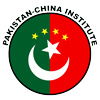Post Conference Report: 6th Islamic Think Tanks Forum
Source : PCI Date : 25-03-2015 By : Sabahat Afsheen
.jpg) |
The two-day 'Think Tanks Forum of the Islamic Countries' was held in Islamabad, on March 7-8, 2015, under the joint auspices of the Pakistan Senate Committee on Defence, the Turkish Asian Center for Strategic Studies (TASAM), the Pakistan-China Institute (PCI), and the Konrad Adenauer Stiftung (KAS). Previously held in Istanbul, Cairo, Baku, Baghdad and Tehran, the 6th Forum was held for the first time in Pakistan, with the theme ‘Addressing Multi-Dimensional Security Challenges in the Islamic Countries‘. 60 delegates from over 30 countries participated in this event, which was attended by a large number of diplomats, policymakers, think tank representatives, and members of the academia. This Forum, organized under the guidance of Senator Mushahid Hussain Sayed, Chairman of the Organizing Committee, was the highest profile Forum to date, as it was graced by H.E. the President of Pakistan Mr. Mamnoon Hussain in a Special Session on 7th March. Moreover, Advisor to the Prime Minister on Foreign Affairs and National Security, H.E. Mr. Sartaj Aziz addressed a Special Morning Session convened on 8th March, while Chairman of the Senate, Mr. Syed Nayyer Hussain Bokhari, addressed the closing session of the Forum the same day.
Senator Mushahid Hussain Sayed inaugurated the Forum on the morning of the first day with his Welcome Address. He stressed the importance ofthe forum serving as a platform where leadership issues in the Muslim countries can be addressed to alleviate the problems that the Islamicworld faces. “The destiny of Muslims,” he stated, “should be decided by Muslims. It should not be decided by those sitting in Washington or Brussels.”As the Senator spoke on the shift in the balance of power from West to East in the 21st Century, referring to it as the Asian Century, he lauded the key role played by China in this regard.
Mr. Suleyman Sensoy, Chairman TASAM, while emphasizing the importance of cooperation among Muslim States related the objectives with which the Forum had been initiated.“We intended to overcome our contradictions with self-criticism. In generating constructive criticism and instituting the process of critical thinking, think-tanks play an important role.”
Mr. Syed Ali Mohammed Mousavi, Secretary General D-8 Organization for Economic Cooperation, was of the view that economic security is intertwined with conventional notions of security. “Safeguarding security is our collective responsibility,” he said.
The first session at the forum discussed the imperatives of multi-dimensional security, elaborating on the political, economic and strategic dimensions. The speakers held forth their views on the opportunities and challenges faced in this regard.Panelists in the second session spoke onthe challenges and prospects of Cooperative Security, while the third session focused on how the Muslim World can help bring stability to Afghanistan and the entire region.
President Mamnoon Hussain addressed the delegates on the evening of the first day. In his speech, he discussed the challenges faced by the “Muslim Ummah”, highlighting the traditional politico-military issues,as well as non-traditional security issues, includingterrorism, extremism, cyber security, energy, food and water security, organized crime, natural disasters, environmental concerns, anddrug trafficking.
Prof. Li Xiguang of Tsinghua University,also addressed the Session, speaking on the China-Pakistan Economic Corridor and the Silk Road Economic Belt. Mr. Ronny Heine, the Resident Representative of KAS, spoke on Germany’s support for achieving peace and prosperity in the Muslim World.
The Islamic World Istanbul Awards were awarded on the occasion as well, to honour individuals whose work contributes towards strengthening the integration of Muslim countries. The awards were presented by President Mamnoon Hussain, and awarded by the Think Tanks Platform of the Islamic Countries (ISTTP). An award was also given in honour of the Pakistan Chief of Army Staff, General Raheel Sharif, for leadership in the struggle against terrorism with clarity, commitment and courage; it was accepted on his behalf by the Senate Defence Committee.
On the second day of the conference, H.E. Mr. Sartaj Aziz delivered the Keynote Address at the Special Morning Session. He highlighted the view that out of the many challenges that the Muslim countries face, the issue of intellectual development is of critical importance. He stressed the need for Muslims to work in collaboration with each other to overcome the common challenges their countries face, further adding that Muslims must build resilient scientific, intellectual and academic partnerships with the rest of the world.
The sessions that followed discussed non-traditional security threats in Muslim countries, and opportunities for cooperation in the defense and space industries.The panel discussions highlighted the need for multilateral cooperation among all Muslim countries on such key issues as climate change and human trafficking, as well as terrorism and cyber security, respectively.
Chairman Senate, Syed Nayyer Hussain Bokhari, in his address atthe closing ceremony of the Forum, stressed that in the wake of emerging threats,“there was a dire need for Muslim countries to sit together and deliberate on the multi-faceted challenges that they face.”
The 6th Think Tanks Forum of the Islamic Countries also issued the Islamabad Declaration to mark the conclusion of the conference. In it was reiterated the Forum’s resolve to institutionalize the ‘World Islamic Forum’ as the voice of Muslim intellectuals, opinion leaders and thinkers. It also stated that a ‘Muslim Women’s Summit’ would be held in Kuala Lumpur in 2015, while the next WIF will be hosted by Iran. In addition, it was also announced that the regional secretariat would be established in Islamabad, which will be hosted by the Pakistan-China Institute.
